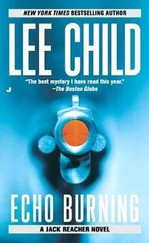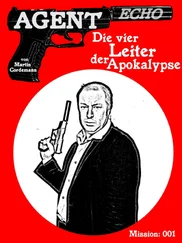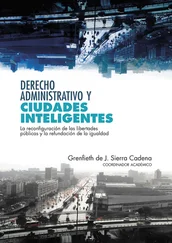There were voices coming from his cabin. I knew he was the only person in there. But he was reading and reciting stuff and doing it in character. I stood outside his door and listened. There were snatches of Imagist and Vorticist poetry. There was some Wyndham Lewis and fragments of T.S. Eliot and what I thought I recognised as E.E. Cummings and part of a story by Ford Madox Ford. It was all of a piece, really, all from the same decade and most of it having originated among the expatriates in Paris. He began to recite that line from the Hemingway short story, the one that begins: In the fall the war was always there, but we did not go to it any more .
I knew it as the first line of the story ‘In Another Country’. It was familiar to me as the first line of what my father had often said he thought was the most beautiful paragraph of prose fiction written in English in the twentieth century. And I wouldn’t have argued with him. It was vivid and it had this melancholy cadence and it really was very beautiful. But he was reciting it over and over, behind his cabin door, like a mantra. And like a mantra, with repetition the words seemed to lose their sense of meaning altogether and become an abstract, inconsequential jumble of sounds.
In the fall the war was always there, but we did not go to it any more.
And behind his door he laughed and the laugh was sardonic, almost a chuckle. And it was delivered in a high, viperish register that did not sound at all like the rumble of my father’s familiar laughter. And I thought that perhaps Harry Spalding was behind the door, sharing his desk and a joke with my dad, perusing the contents of my father’s gun cabinet with judicious expertise and the hole still jagged and dripping in his head from his self-murder.
I almost slapped myself, then. It seemed as if my father was losing his mind. If I followed, then both of us were lost. I was very afraid, listening to what I was hearing from behind that door, the snatches of nonsense, the weird logic of its period somehow dictating it was not, any of it, entirely random. In his mind, he was in the 1920s. He was in the decade of Lindbergh and Dempsey and Carpentier and Bricktop and Al Capone.
And Harry Spalding, of course. Who Suzanne had insisted was the Devil himself.
If I succumbed to panic now, then I would not be able to save my father. Both of us would be lost. Under me, I thought I could feel the boat gathering speed and impetus. I stole away from the cabin door towards the galley. I would have to get my own food. I had to eat or I felt I would faint. Though now, of course, I found my appetite was entirely gone.
‘Martin?’
I did not reply.
‘Martin? Why don’t you join our little salon? We’re devoting ourselves to a cultural evening.’ More laughter, this time muffled, as though the mirth were contained by a stifling hand. ‘It’s all very intimate and not at all formal. You’re more than welcome.’
Was this how people sounded when they went mad? Was I sharing this wilful, disobedient boat in the middle of an ocean with a madman? When I got to the galley I realised I was sobbing. Tears dripped from my face on to surfaces still with the showroom sheen of newness on them. We had been at sea less than a week and were victims of catastrophe. The situation was hopeless. It was hopeless. But it was not terror that made me weep, and it was not self-pity either. It was grief for my father, believing him lost.
I ate a bowl of chicken and lentil broth in the fog at the wheel with a chunk of defrosted bread. And I drank with my meal a large measure of rum. I had brought the rum aboard myself as a sort of ironic joke, played against the traditions of the sea. But I badly needed a drink and it was warm in my belly and a comfort as the Dark Echo continued with smooth relentlessness through the water on its rogue course. The booze emboldened me, I think. I realised that I would have to confront my father. There were guns in his cabin. In his present, irrational mood, he was a danger to himself and a liability to both of us. Maybe I would be obliged to restrain him. Perhaps I would have to do that and then dump the various weapons over the side. But I could not just ignore what was going on. It was a reversal of our normal roles, but I had a duty of care to my dad. And there was an urgent practical imperative. If I could shake him out of the delusional fugue he was in, he could help me with the boat. His seamanship was more than the equal of mine. Maybe he had tampered with the auto-steer and maybe he had not. Whatever, the graveness of the situation and the rum told me that I had no choice but to confront him.
I knocked.
‘Enter.’
His cabin looked normal. There was no harsh smell of tobacco and the lamps lit the space with unambiguous clarity. I stole a glance at the guns in their cabinet. But there was no belligerence about them now. They looked like the lethal tools they undoubtedly were. But there was a neutrality about them that had been troublingly absent earlier. My father looked groomed, composed. He must have eaten, too, I thought. Certainly he had discovered the presence of mind from somewhere to shower and shave. Under us, I could feel the Dark Echo smooth on its mutinous path. If anything, the vessel was getting faster in the fog. It was inexplicable.
‘We’re on a homeward heading, Dad.’
‘I know.’
‘Why?
‘You’re a good sailor, Martin. I’ve watched you. You’re punctilious and possess no shortage of endurance.’ He smiled, but it was a flawed, conflicted smile. ‘I’ve been delighted with you. I’ve been proud of you, truth be told. But I’m no part of what the Dark Echo is doing, in answer to your unasked question. She’s doing what she’s doing. It’s no doing of mine.’
I dumped myself in the chair at his desk in front of him.
‘All our communications systems are out. Cellular, satellite phone, wireless. We don’t have sonar and email is so sporadic it’s virtually useless. The engine is completely dead. The binnacle compass is the only instrument still working consistently. That, and the emergency beacon, which no one can see anyway in the fog. We know which direction we’re going in, but we can’t pinpoint our own position. Even if we could, we can’t get on to the emergency frequencies to put out a Mayday call. We’re on our own.’
‘Do you think this fog is some sort of experimental thing we’ve blundered into?’
He smiled. ‘Are you asking me if it has a military application? I don’t think so, Martin. And neither do you. It’s a long time since the character who conjured this fog had anything to do with the military.’ He reached for the framed picture of the boat, the one he had seen originally as a child. He held it between his hands. ‘I remember very vividly the time I first saw this photograph. The volume containing it lay open on the page. It lay in a pool of sunlight on the bedside locker at which I would sit to do my homework. My mother swore she hadn’t put it there. We did not run in those days to domestic staff, Martin. And I did not take it from the shelf and put it there myself. Was it destiny, do you think? Or was it some omnipotent design, dictating my ambitions, shaping the fabric of my dreams.’
He put the picture back down. He lifted his hands to his face and rubbed at his eyes with his fingers. ‘It gets hard, after the age of forty or so.’
‘What does?’
‘You lose the resilience. You lose the dynamism. There are all sorts of ways of continuing the illusion of youth. But that’s what it becomes, son. It becomes an illusion. And it turns itself, regardless of your will, into a memory. You become tired. And fatigue makes a man vulnerable.’
I didn’t much care about what he was saying, to be honest. I was just relieved that he was sounding like my father again. It was that happy mixture of portentousness and self-pity and good sense I fondly recognised as him. But we had still the problem to confront of our ungovernable boat. I’d have called her delinquent, but she was ninety years old. There were forces aboard her, I felt, far more profound and troubling than delinquency. She felt possessed.
Читать дальше












